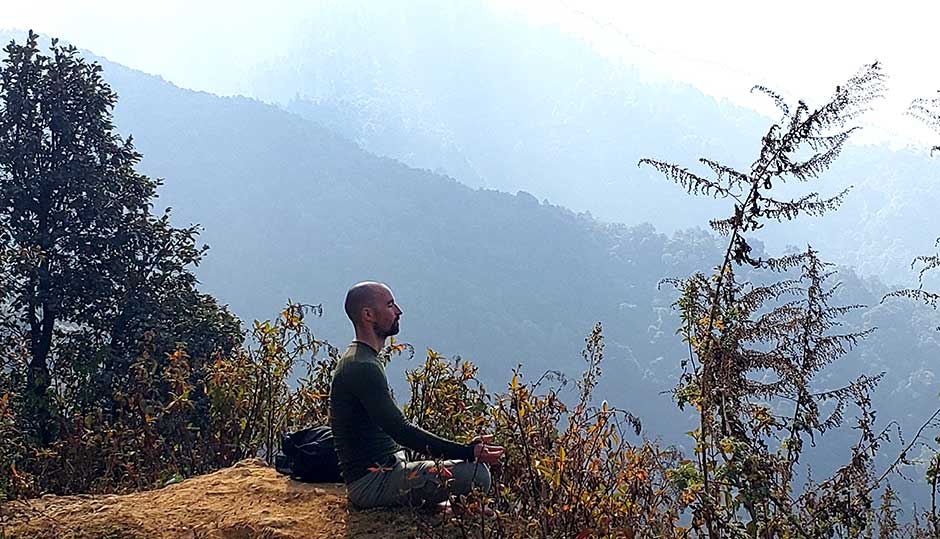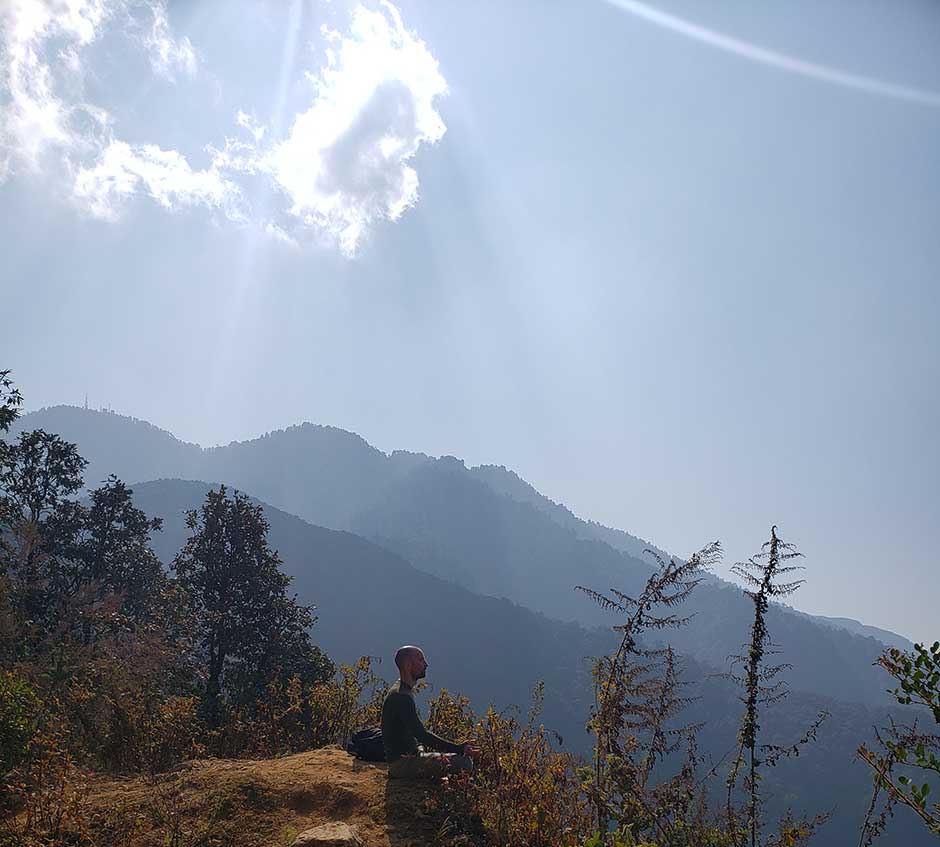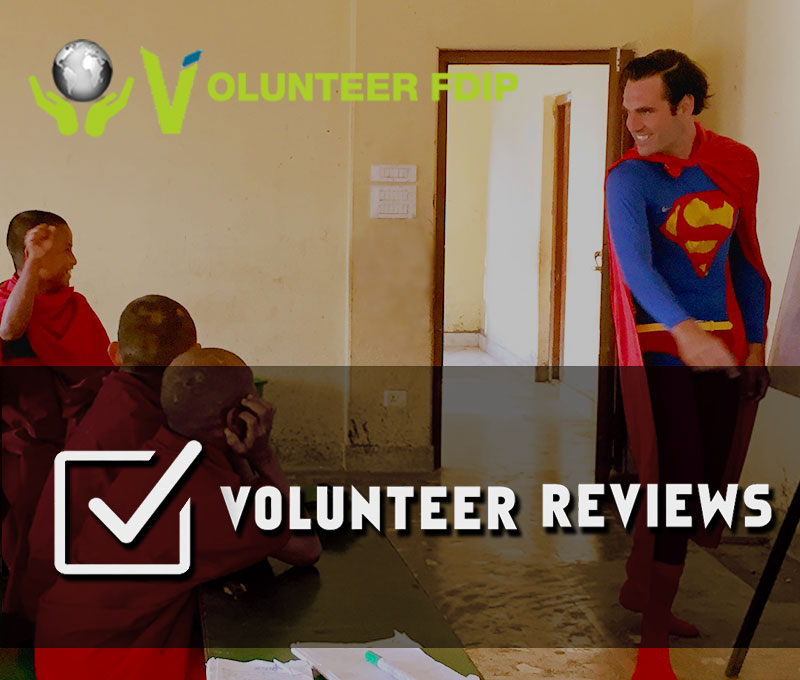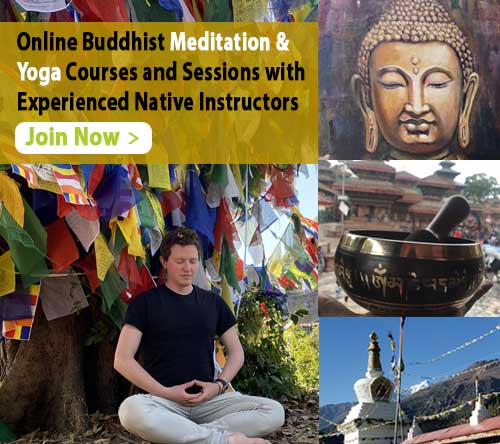How to Meditate: A 2024 Helpful Guide
Discover the methods and steps we suggest on how to meditate with our 2024 guide: simple steps, benefits for mental and physical health, and tips to integrate it into daily life.
Last Updated: February 7, 2024
Tweet
Photo: A practitioner meditating
Key Takeaways
Meditation is more than just a practice for achieving peace of mind. It's a method proven over millennia, offering deep relaxation and mental clarity through mindfulness and concentration exercises. Understanding its value and learning the basics can set you on a path to a more serene life.
In 2024, the global emphasis on mental health has highlighted meditation as a key tool in managing the increased stress and digital overload we face daily. Tech advancements have made meditation more accessible, with apps offering personalized sessions that adapt to your emotional state in real-time.
Moreover, the latest research in 2024 underscores meditation's role in enhancing brain plasticity, showing that even short daily sessions can significantly improve memory and cognitive flexibility. This has encouraged schools and corporations to integrate meditation into their wellness programs, acknowledging its profound benefits on productivity and mental well-being.
Here we are putting light into the matter of how to meditate and how to embark into your journey of mindfulness.
Learning Meditation: A Helpful Guide
Starting with meditation requires patience, practice, and a routine. Here’s a simple guide to help beginners find their way into the practice.
Choosing a Quiet Place
Ensure your meditation space is free from disturbances for optimal concentration.
Comfort Is Key
Wearing warm, comfortable clothing and finding a stable yet relaxed sitting position are crucial steps in preparing for meditation.
The Importance of Posture
An upright posture facilitates free breathing, setting the stage for effective meditation practice.
Timing Your Sessions
Begin with short sessions and gradually extend them, using an alarm clock to keep track without distraction.
Please click here to get the complete details on available programs, volunteer’s roles and activities , accommodation, cost, visa , vaccination, airport arrival and the rest of it.
Get More Info Now »
The Meditation Process
The core of meditation lies in its practice. Here are steps and tips to guide you through starting and ending a meditation session.
Starting with Breath
Focusing on your breath helps stabilize the mind and serves as the foundation for your meditation practice.
Letting Thoughts Wander

Acknowledging and releasing thoughts without attachment during meditation fosters a state of observer, enhancing the quality of the practice.
Ending Your Session
Concluding your meditation gradually allows you to carry the calmness and strength gained into your daily life.
What Meditation Does
Meditation’s impact is comprehensive, influencing psychological well-being and physical health, demonstrating the profound effects of regular practice.
Psychological Benefits
Meditation enhances stress management, promotes inner peace, and improves cognitive functions, among other mental health benefits.
Physical Health Improvements
Studies show meditation positively affects the immune system, blood pressure, and even cholesterol levels, highlighting its significance in maintaining physical health.
Incorporating Meditation into Daily Life
Learning to meditate is the first step; integrating it into your daily routine ensures lasting benefits and a transformative impact on your life.
Achieving Inner Peace
Meditation facilitates a calm, focused mind, essential for overcoming the challenges of modern life.
A Practice for Everyone
Regardless of lifestyle, anyone can learn to meditate, with various techniques available to suit individual preferences and needs.
Starting Simple
For those new to meditation, beginning with basic breathing exercises and mindfulness can pave the way for a deeper exploration of this ancient practice.
Consistency and Patience
Building a consistent practice and being patient with the process are key to reaping the full benefits of meditation.
Meditate in 5 Steps
- Find a Comfortable Position: Sit in a quiet place where you can remain undisturbed, ensuring your back is straight, whether on the floor, a chair, or a bed.
- Set a Timer: For beginners, start with 2-3 minutes of meditation, gradually increasing the duration as you become more comfortable with the practice.
- Focus on Your Breath: Close your eyes and pay attention to your breathing, observing the sensation of air moving in and out of your body.
- Acknowledge Wandering Thoughts: When your mind drifts, gently redirect your focus back to your breath without judgment.
- Conclude Gently: After your timer signals the end, slowly open your eyes and take a moment to absorb the peace and calmness before continuing with your day. Consider trying guided meditations to help maintain focus.
Why Meditate?
Meditation serves as mental training to reduce stress, anxiety, and dissolve negative thoughts, promoting a state of deep relaxation.
Beyond Spirituality
Contrary to some beliefs, meditation's benefits are recognized in various scientifically validated relaxation methods, such as autogenic training, yoga, and MBSR, without necessitating a spiritual approach.
Exploring Meditation Techniques
Passive Meditation: A Journey Within
- Silent Meditation: Focus on the breath's flow, allowing thoughts to pass without attachment.
- Mindfulness Meditation: Observe the body and surroundings without judgment, embracing the moment.
- Zen Meditation: Cultivate intense awareness through a disciplined, motionless posture, focusing on bodily sensations.
Active Meditation: Engaging Body and Mind
- Walking Meditation: Move rhythmically, aligning breath with each step, to release mental and physical tension.
- Body Scan Meditation: Lie back and methodically note body sensations, promoting relaxation.
- Mantra Meditation: Use mantras to center the mind, letting go of negative thoughts with focused repetition.
FAQ: How to Meditate - A 2024 Guide
1. Why should I start meditating?
Meditation is a proven method to reduce stress, enhance mental clarity, and improve memory and cognitive flexibility, making it essential for modern life's challenges.
2. How long should a beginner meditate?
Start with 2-3 minutes and gradually increase as you become more comfortable. Even short daily sessions can significantly benefit your mental and physical health.
3. Can meditation improve physical health?
Yes, studies show meditation positively affects the immune system, blood pressure, cholesterol levels, and overall physical health by reducing stress and enhancing brain plasticity.
In a Nutshell: How to Meditate
Meditation is a timeless practice offering a path to tranquility and clarity. This guide provides the first steps towards incorporating meditation into your life for greater peace.
Whether you're new to meditation or seeking to deepen your practice, this overview offers essential insights into beginning your journey towards inner serenity.
We hope this information proves invaluable to meditation enthusiasts, offering insights and practical steps to understand and integrate this transformative practice into daily life. May it guide you towards greater peace, mental clarity, and enhanced well-being in your journey towards inner serenity.











